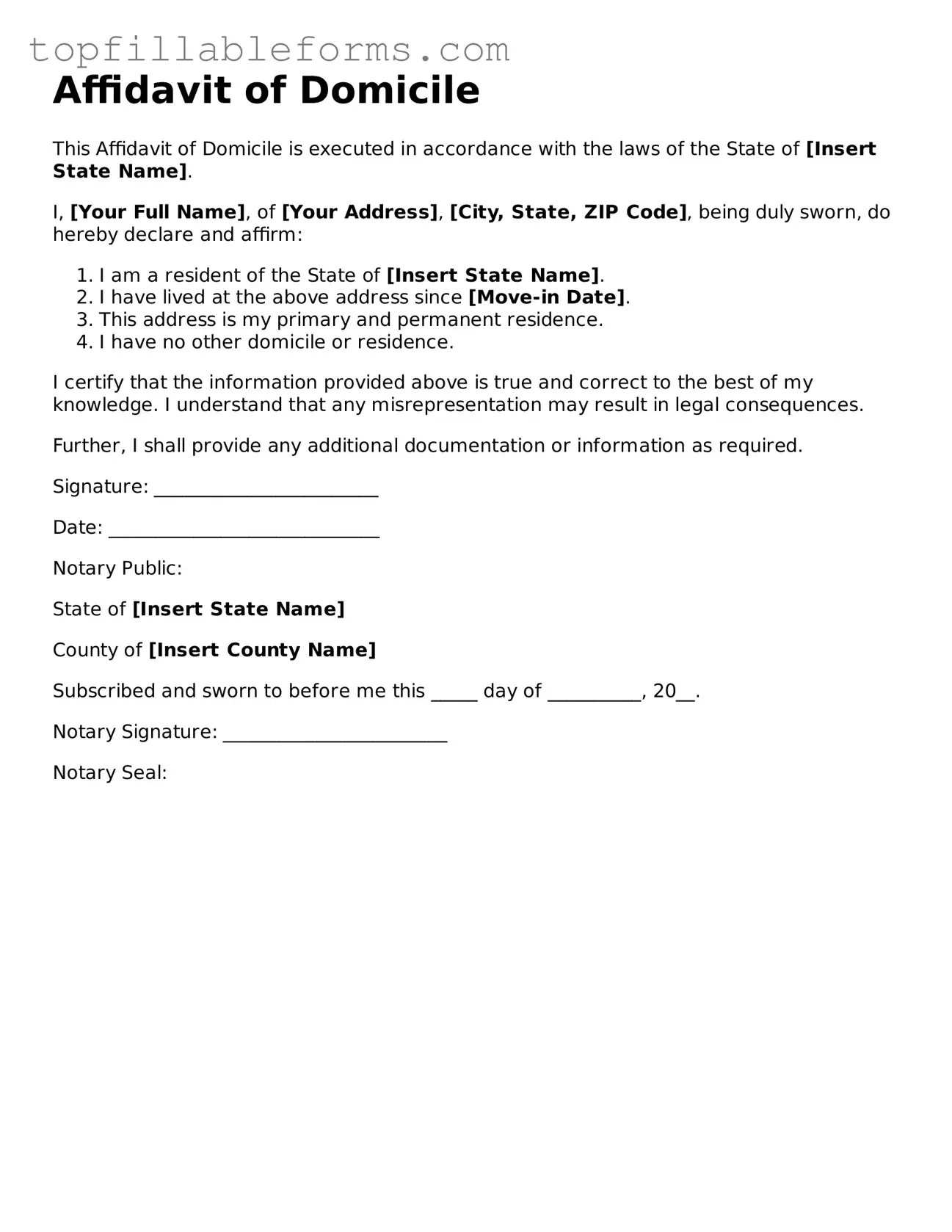Free Affidavit of Domicile Form
The Affidavit of Domicile is a legal document that serves to confirm an individual's permanent residence, often utilized in estate matters and financial transactions. This form provides essential information about a person's primary living address, helping to establish residency for various legal purposes. Understanding its significance can aid in navigating the complexities of property and estate management.
Open Affidavit of Domicile Editor Here

Free Affidavit of Domicile Form
Open Affidavit of Domicile Editor Here
Finish the form now and be done
Finish your Affidavit of Domicile online by editing, saving, and downloading fast.
Open Affidavit of Domicile Editor Here
or
▼ PDF File
